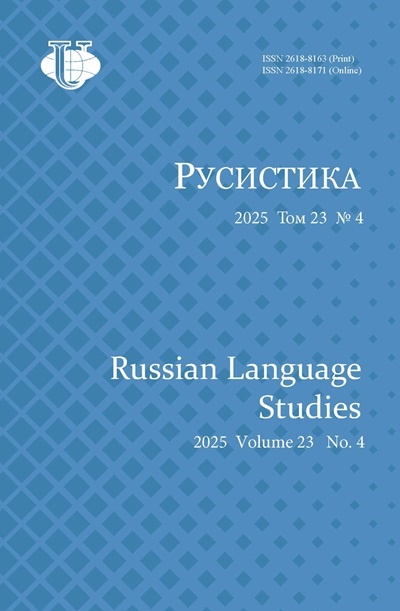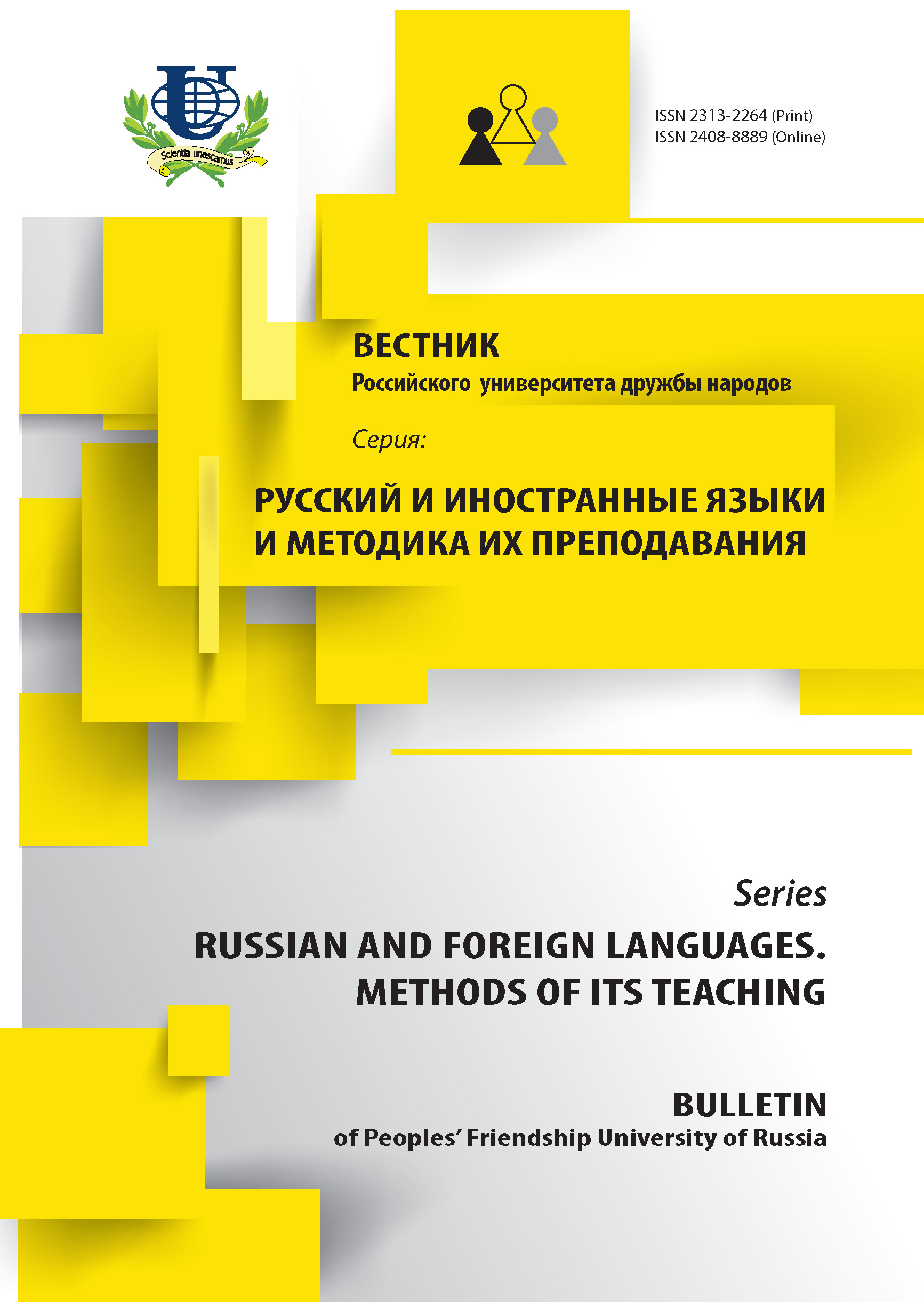ОСОБЕННОСТИ СТРУКТУРНОЙ ОРГАНИЗАЦИИ ПРИЛАГАТЕЛЬНЫХ-КОМПОЗИТОВ
- Авторы: Соснина ЛВ1
-
Учреждения:
- Донецкий национальный технический университет
- Выпуск: № 1 (2016)
- Страницы: 46-52
- Раздел: Статьи
- URL: https://journals.rudn.ru/russian-language-studies/article/view/13478
- ID: 13478
Цитировать
Полный текст
Аннотация
В данной статье анализируются научные подходы к изучению прилагательных-композитов в русском языке. Приоритетное значение имеет ономасиологический подход, поскольку он сочетает в себе особенности лингвального и когнитивного направлений. В современном языкознании возникает необходимость классификации сложных адъективов с учетом их концептуальных характеристик. Традиционный подход предполагает наличие ономасиологической модели, согласно которой описание сложных слов происходит с учетом их ономасиологического базиса и ономасиологического признака. Когнитивный анализ базируется на выявлении соотношений между производным словом и структурами сознания или знания. Предметом статьи являются особенности организации прилагательных, образованных от соматизмов. Исследование проводится с учетом принципов концептуальной деривации и основных положений теории композитостроения.
Ключевые слова
Список литературы
- Абросимова Л.С. Теоретико-методологические установки когнитивного подхода к изучению словообразования // Вестник Балтийского федерального университета им. И. Канта, 2014. Вып. 2. С. 7-14.
- Бенвенист Э. Общая лингвистика / пер. с франц. Ю.Н. Караулова и др. М.: Прогресс, 1974. 447 с.
- Болдырев Н.Н. Оценочная метарепрезентация: проблемы изучения и описания / Н.Н. Болдырев // Когнитивные исследования языка: сб. науч. тр. М.: Ин-т языкознания РАН; Тамбов: Издательский дом ТГУ им. Г.Р. Державина, 2009. Вып. 5. Исследование познавательных процессов в языке. С. 43-51.
- Евсеева И.В. Концептуализация опыта человека посредством деривационных единиц // Вестник Кемеровского госуд. университета. Вып. № 4. 2011. С. 161-167.
- Евсеева И.В. Фреймовая организация комплексных единиц словообразовательной системы // Вестник Иркутского государственного лингвистического университета. 2011. Вып. № 16. Т. 4. С. 163-170.
- Евсеева И.В. Лексико-словообразовательное гнездо с вершиной именем соматического объекта: фреймовое устройство // Вестник Иркутского государственного лингвистического университета. 2013. Вып. № 1 (22). С. 33-41.
- Казак М.Ю. Интегративная теория словообразовательного гнезда: грамматическое моделирование, квантитативные аспекты; потенциал; прогнозирование: автореф. дисс. … д-ра филол. наук. Белгород, 2004. 39 с.
- Кубрякова Е.С. Краткий словарь когнитивных терминов / Е.С. Кубрякова, В.З. Демьянков, Ю.Г. Панкрац. М.: МГУ, 1996. 245 с.
- Кубрякова Е.С. Язык и знание: на пути получения знаний о языке: части речи с когнитивной точки зрения: роль языка в познании мира / Е.С. Кубрякова. М.: Языки славянской культуры, 2004. 560 с.
- Минский М. Фреймы для представления знаний / пер. с англ. О.Н. Гринбаума. М.: Энергия, 1979. 151 с.
- Резниченко Л.В. Концептуальная деривация как основа формирования значений субстантивированных имен прилагательных // Вестник Ленинградского государственного университета имени А.С. Пушкина. 2012. Т. 1: Филология. № 2. С. 146-154.
- Dokulil M. Tvoreni slov v ceštine. I. Teorie odvozováni slov / M. Dokulil. Praha: CAV, 1962. 263 s.
Дополнительные файлы














